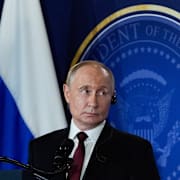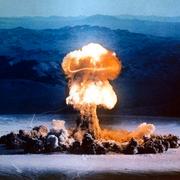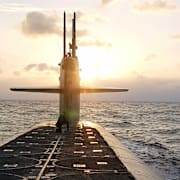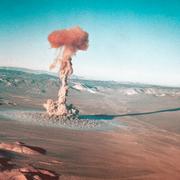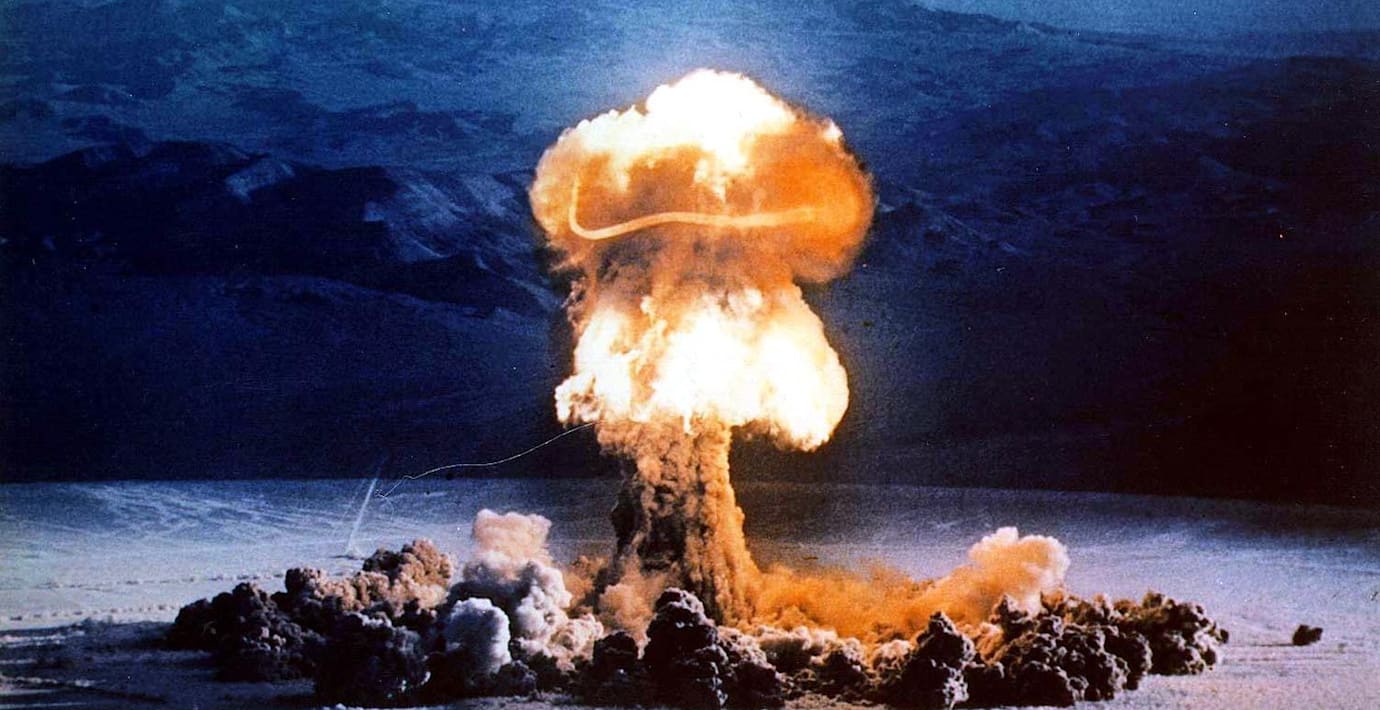
Oro i omvärlden efter Trumps kärnvapenbesked
Att USA återupptar sina testsprängningar av kärnvapen kommer att leda till en ”ny era av oförutsägbarhet”, säger den ryske parlamentsledamoten Andrej Kartapolov enligt den ryska nyhetsbyrån RIA.
Kinas utrikesdepartement säger i ett uttalande att man hoppas att USA inte kommer att undeminera den globala stabiliteten, utan fortsätta följa de internationella överenskommelserna om att inte provspränga kärnvapen.
Japan, som kärnvapenbombades av USA 1945, säger i ett kort uttalande att man ”kommer att fortsätta verka för en värld utan kärnvapen” efter Trumps besked.
Donald Trump meddelade i natt att han beordrat nya kärnvapentester, utan att ge närmare detaljer. Inget land förutom Nordkorea har testsprängt kärnvapen sedan 1998.
bakgrund
Kärnvapentester
Wikipedia (en)
Nuclear weapons tests are experiments carried out to determine the performance of nuclear weapons and the effects of their explosion. Over 2,000 nuclear weapons tests have been carried out since 1945. Nuclear testing is a sensitive political issue. Governments have often performed tests to signal strength. Because of their destruction and fallout, testing has seen opposition by civilians as well as governments, with international bans having been agreed on. Thousands of tests have been performed, with most in the second half of the 20th century.
The first nuclear device was detonated as a test by the United States at the Trinity site in New Mexico on July 16, 1945, with a yield approximately equivalent to 20 kilotons of TNT. The first thermonuclear weapon technology test of an engineered device, codenamed Ivy Mike, was tested at the Enewetak Atoll in the Marshall Islands on November 1, 1952 (local date), also by the United States. The largest nuclear weapon ever tested was the Tsar Bomba of the Soviet Union at Novaya Zemlya on October 30, 1961, with the largest yield ever seen, an estimated 50–58 megatons.
With the advent of nuclear technology and its increasingly global fallout an anti-nuclear movement formed and in 1963, three (UK, US, Soviet Union) of the then four nuclear states and many non-nuclear states signed the Limited Test Ban Treaty, pledging to refrain from testing nuclear weapons in the atmosphere, underwater, or in outer space. The treaty permitted underground nuclear testing. France continued atmospheric testing until 1974, and China continued until 1980. Neither has signed the treaty.
Underground tests conducted by the Soviet Union continued until 1990, the United Kingdom until 1991, the United States until 1992, and both China and France until 1996. In signing the Comprehensive Nuclear-Test-Ban Treaty in 1996, these countries pledged to discontinue all nuclear testing; the treaty has not yet entered into force because of its failure to be ratified by eight countries. Non-signatories India and Pakistan last tested nuclear weapons in 1998. North Korea conducted nuclear tests in 2006, 2009, 2013, January 2016, September 2016 and 2017. The most recent confirmed nuclear test occurred in September 2017 in North Korea.
Omni är politiskt obundna och oberoende. Vi strävar efter att ge fler perspektiv på nyheterna. Har du frågor eller synpunkter kring vår rapportering? Kontakta redaktionen
